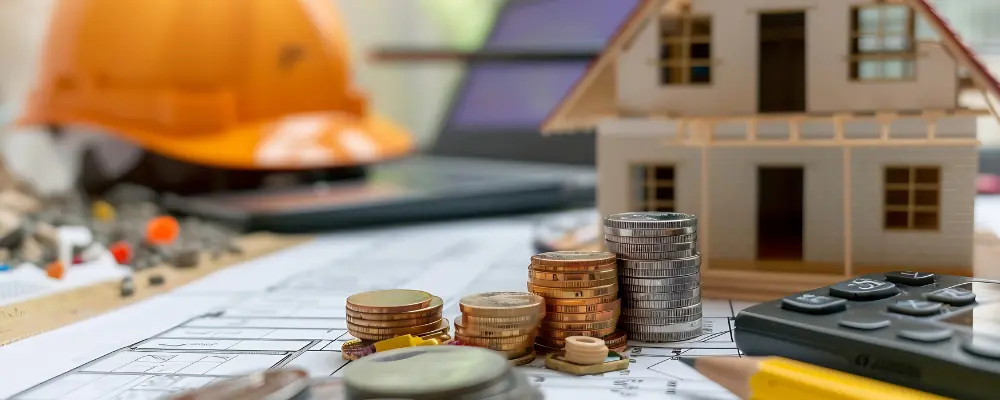Undertaking a construction project in London can be both exciting and challenging. Whether you’re building an extension, renovating your home, or developing a new property, understanding the key factors that affect construction costs is essential to managing your budget effectively. In this blog, we’ll explore the main elements that influence construction costs in London and provide insight into how you can make informed decisions throughout your project.
1. Location Matters: The Cost of Building in London
London is one of the most expensive cities in the world for construction, and your project’s location within the city can have a significant impact on overall costs. For example, projects in central London or high-demand areas like Kensington, Chelsea, or Westminster tend to be more expensive due to higher land values, stricter planning regulations, and increased demand for skilled labor. On the other hand, construction in outer boroughs may offer slightly lower costs, though the difference may still be minimal compared to other parts of the UK.
Tip: Research property values and construction trends in your specific area to get a clearer idea of what to expect in terms of costs.
2. Materials and Supply Chain Challenges
The price and availability of materials are key factors that can affect the cost of your construction project. In London, access to high-quality materials is typically good, but the cost of these materials has risen in recent years due to global supply chain disruptions, Brexit-related import issues, and inflation.
Common materials such as steel, timber, and concrete have seen price increases, and sourcing specialty items or sustainable materials may come with an additional premium. It’s important to factor in potential delays in delivery and price fluctuations when budgeting for materials.
Tip: Work with a contractor who has reliable suppliers and can secure materials at competitive rates. Ordering materials early can also help avoid delays and sudden price hikes.
3. Labor Costs and the London Premium
Labor is one of the most significant contributors to construction costs. Skilled labor, such as electricians, plumbers, and carpenters, tends to be more expensive in London due to the high cost of living and the competitive market. The demand for experienced builders, especially those who specialize in complex projects or heritage properties, can drive labor costs even higher.
Tip: When hiring contractors, ensure they are reputable and provide detailed quotes that outline labor costs clearly. Avoid cutting corners on labor, as it can lead to poor workmanship and future repair costs.
4. Planning Permissions and Regulatory Fees
London has some of the strictest planning regulations in the UK, and navigating the planning permission process can be time-consuming and costly. Depending on the size and nature of your project, you may need to apply for multiple permits or comply with heritage and conservation area regulations, especially if your property is in a listed area.
In addition to planning permissions, you’ll need to budget for building control inspections and compliance with safety regulations. These regulatory fees can add up quickly, and failure to comply can result in fines or project delays.
Tip: Hire a professional architect or project manager who is familiar with London’s planning laws to guide you through the process and avoid costly mistakes.
5. Site Conditions and Access
Every construction site is unique, and the physical conditions of your site can heavily influence costs. In London, many properties are built on complex or restricted plots, especially in densely populated areas. If your project is located in a narrow street, has limited access for construction vehicles, or is near underground tunnels, the costs for logistics and preparation can increase.
Additionally, older buildings in London may require more extensive groundwork or repairs to foundations, which can drive up costs unexpectedly.
Tip: Conduct a thorough site survey before starting your project to identify potential challenges and factor in additional costs for difficult access or structural reinforcements.
6. Project Scope and Design Choices
The size and complexity of your project will naturally affect the overall cost. A simple extension or renovation will cost significantly less than a full-scale development or a luxury build. Design choices also play a big role in determining costs. High-end finishes, bespoke designs, and state-of-the-art technology can quickly add to your budget.
If you’re considering eco-friendly or sustainable construction methods, such as solar panels, underfloor heating, or green roofs, keep in mind that while these features may have higher upfront costs, they often lead to long-term savings on energy bills and increased property value.
Tip: Prioritize essential elements of your project and be flexible with non-essential design features. Discuss your budget constraints with your architect or contractor to ensure that your vision aligns with what’s financially feasible.
7. Unexpected Costs and Contingencies
No matter how well you plan, construction projects often come with unexpected costs. Unforeseen issues, such as discovering structural problems during demolition, hidden asbestos, or the need for additional permits, can lead to budget overruns.
It’s advisable to set aside a contingency fund—typically 10-15% of your total budget—to cover any surprises that may arise during the construction process.
Tip: Keep clear communication with your project team and request regular updates to monitor spending and address any potential issues early on.
Final Thoughts
Managing construction costs in London can be challenging, but with the right preparation and expert guidance, it’s possible to keep your project on track and within budget. Whether you’re planning a small home renovation or a major development, understanding the key factors that influence construction costs will help you make informed decisions and avoid common pitfalls.
If you’re considering a construction project in London, our team at [Your Company Name] is here to help. With years of experience navigating London’s construction landscape, we can provide expert advice and high-quality service tailored to your specific needs.



